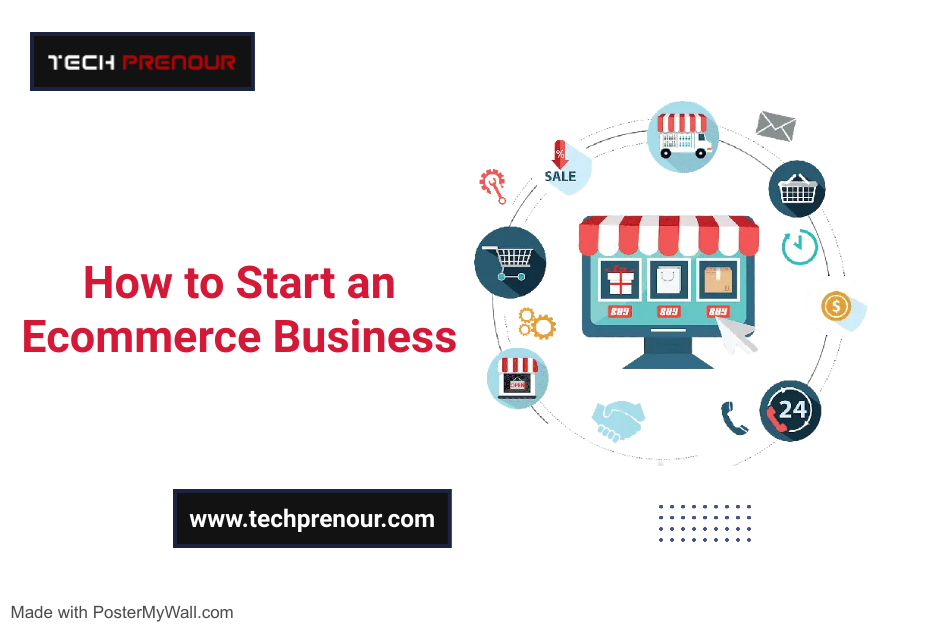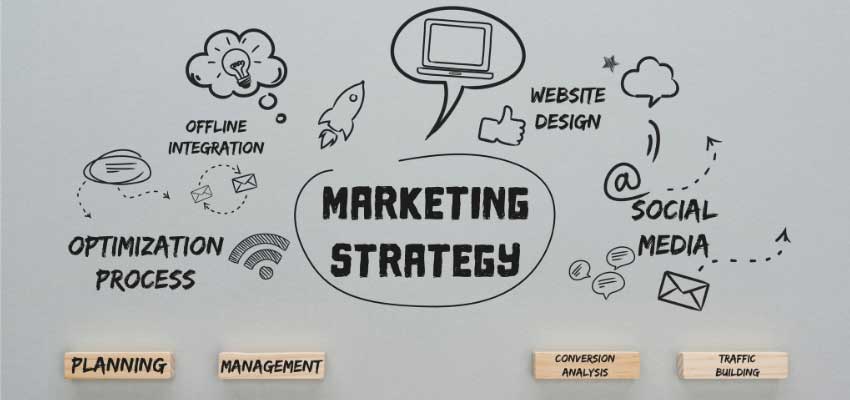Table of contents
- Choose Your Product or Niche:
- Conduct Market Research:
- Create a Business Plan:
- Choose the Right Ecommerce Platform:
- Build Your Online Store:
- Secure Reliable Suppliers:
- Implement Effective Marketing Strategies:
- Optimize for Mobile Devices
- Provide Excellent Customer Service:
- Monitor and Analyze Performance:
- Conclusion:
- FAQ’s
In today’s digital age, starting an ecommerce business has become an increasingly popular venture. With the right strategies and tools, you can tap into the vast online market and build a successful business. However, diving into the world of ecommerce can be overwhelming, especially for beginners. This blog post will provide you with a comprehensive guide on how to start an ecommerce business from scratch. So, let’s get started!
Choose Your Product or Niche:
The first step in starting an ecommerce business is to decide what products or services you want to sell. Research various niches and identify potential markets with high demand and relatively low competition. Consider your own interests, expertise, and target audience when selecting your product or niche.
Conduct Market Research:
Before launching your ecommerce business, it’s crucial to conduct thorough market research. Identify your target audience, their preferences, and purchasing behavior. Analyze your competitors, their pricing strategies, and unique selling points. This information will help you position your business effectively and stand out from the competition.
Create a Business Plan:
Having a solid business plan is essential for the success of your ecommerce venture. Outline your goals, target market, marketing strategies, financial projections, and operational processes. This plan will serve as a roadmap to guide your business decisions and help you secure funding if needed.
Choose the Right Ecommerce Platform:
Selecting the right ecommerce platform is vital for creating and managing your online store. Consider factors such as ease of use, scalability, customization options, payment gateways, and inventory management. Popular platforms like Shopify, WooCommerce, and BigCommerce offer user-friendly interfaces and robust features to simplify your ecommerce journey.

Build Your Online Store:
Once you’ve chosen an ecommerce platform, it’s time to build your online store. Customize the design to align with your brand image and optimize the user experience. Ensure that your store is mobile-friendly and has fast loading times. Additionally, set up essential pages such as product listings, a secure checkout process, and customer support options.
Secure Reliable Suppliers:
If you’re selling physical products, finding reliable suppliers is crucial for maintaining product quality and timely order fulfillment. Conduct due diligence in identifying reputable suppliers who can meet your business requirements. Establish strong relationships with them to ensure smooth operations and customer satisfaction.
Implement Effective Marketing Strategies:
To drive traffic and generate sales, you need to implement effective marketing strategies. Leverage search engine optimization (SEO) techniques to improve your website’s visibility on search engines. Create engaging content through blogs, videos, and social media to attract and retain customers. Utilize paid advertising channels like Google Ads and social media ads to reach a wider audience.
Optimize for Mobile Devices
With the increasing use of smartphones, it’s crucial to optimize your ecommerce store for mobile devices. Ensure that your website is responsive and provides a seamless browsing and shopping experience across various screen sizes. Mobile optimization is not only essential for user experience but also affects search engine rankings.
Provide Excellent Customer Service:
Exceptional customer service is key to building customer loyalty and driving repeat business. Offer multiple communication channels, such as live chat, email, and phone support, to assist customers with their queries and concerns promptly. Responding to customer feedback and resolving issues in a timely manner will help foster a positive reputation for your business.
Monitor and Analyze Performance:
Regularly monitor and analyze key performance indicators (KPIs) to assess the success of your ecommerce business. Track metrics such as website traffic, conversion rates, average order value, and customer acquisition costs. Use tools like Google Analytics to gain valuable insights and make data-driven decisions for continuous improvement.
Conclusion:
Starting an ecommerce business requires careful planning, market research, and effective execution. By following the steps outlined in this guide, you’ll be well on your way to building a successful online store. Remember to adapt to market trends, stay updated with industry best practices, and continuously refine your strategies to thrive in the competitive ecommerce landscape. Good luck!
FAQ’s
While technical knowledge can be helpful, many ecommerce platforms provide user-friendly interfaces that require no coding skills. You can easily set up and manage your online store without extensive technical expertise.
The time required to start an ecommerce business varies depending on the complexity of your niche and the amount of preparation and research you undertake. It can take anywhere from a few weeks to several months to launch your online store.
The choice of marketing channels depends on your target audience and budget. Popular options include search engine optimization (SEO), social media marketing, content marketing, email marketing, and paid advertising.




